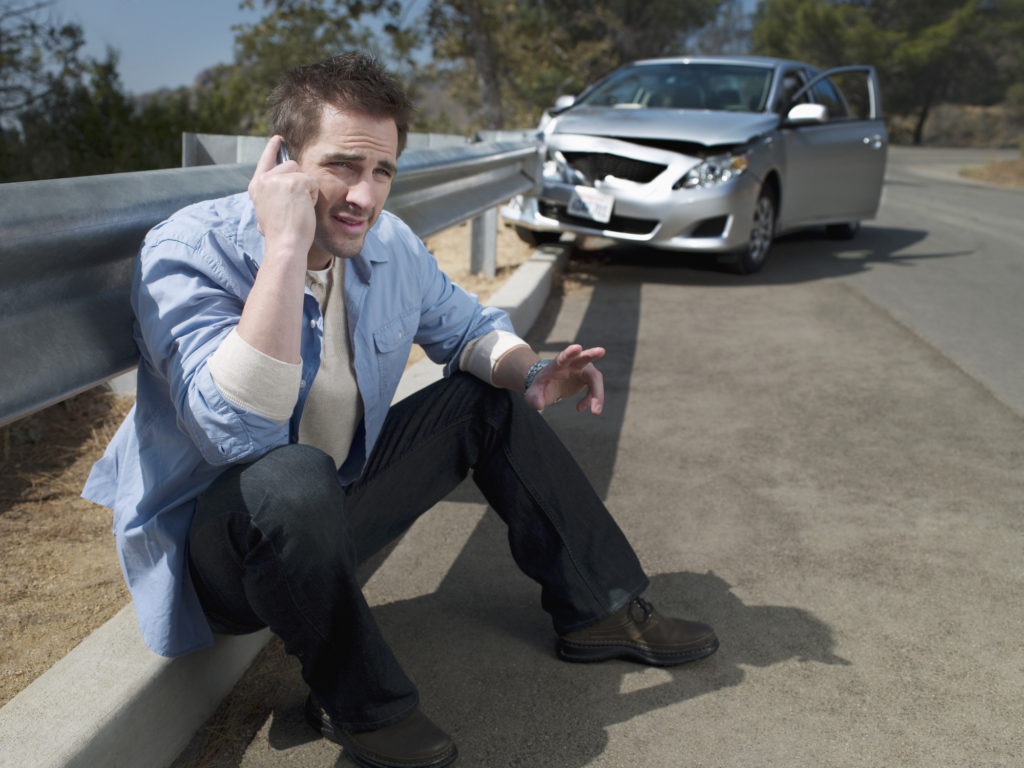
The answer to that question depends on a number of factors: Who was at fault in the accident? Were you driving the company vehicle within the scope of your job or outside of your duties? What kind of insurance does your employer have?
Let’s delve into the details of “vicarious liability.”
Q: What is legal nitty gritty?
A: The legal theory that applies to employees driving company vehicles is called “respondeat superior”. It means “let the master answer.” It’s also called vicarious liability. Those are fancy ways of saying that employers are responsible for their employees’ actions while they are acting under the scope of their employment.
When it comes to company vehicles, the “scope of their employment” means the employee is using the vehicle to drive to meetings or other off-site jobs, conduct deliveries, and perform other duties necessary to the position. This can even include company parties and picnics. Typically, the scope of employment does not include driving to and from work. But there are exceptions to that rule. Exactly what duties are included depends on the unique job description and employer-employee agreement.
If you were using the vehicle to run a personal errand during business hours, you would not be covered.
Q: What are the two types of work insurance?
A: Typically, two types of insurance come into play when it comes to company car accidents:
Workers’ compensation: This coverage compensates employees for medical bills, about two-thirds of lost wages, and out-of-pocket expenses. If the employee becomes disabled due to the accident, worker’s compensation will pay the employee a settlement. However, worker’s comp does not cover payment for pain and suffering.
Liability insurance: This coverage reimburses employees for injuries sustained by other drivers. It covers medical bills, out-of-pocket expenses, lost wages, and pain and suffering.
Q: What is covered in an accident?
A: If you were involved in an accident while driving your company vehicle, and the accident was partly or totally your fault, your company may be held liable. This means your employer’s insurance company may have to pay damages to the injured driver, passenger(s), pedestrian or cyclist. Damages include medical bills, lost wages, pain and suffering, and other out-of-pocket expenses.
Your employer’s insurance also protects you from being sued by the third party (the other driver or injured person). So you won’t have to pay damages yourself. Also, if the third party attempts to sue you, your employer’s insurance will also typically cover your legal fees.
If the accident was not your fault, you are entitled to damages from your company’s insurance policy and from the at-fault driver’s insurance policy. If the at-fault driver was not driving a company car but was driving under his or her own insurance, that driver’s insurance company will pay your medical bills, lost wages, pain and suffering, and out-of-pocket expenses.
However, typically you cannot collect, say, medical bill reimbursement from both worker’s compensation and the at-fault driver’s insurance company. So if you were reimbursed by your worker’s comp insurance, then sued the at-fault driver and were awarded damages including medical bills and pain and suffering, you would have to reimburse worker’s comp for what they paid you. But you could keep the amount for pain and suffering.
Q: What if you are driving your own vehicle for work?
A: If you have to drive your own vehicle for your job – for example deliveries – your employer’s insurance will probably not cover you. It is sometimes possible to purchase a “rider” from your insurance company that will cover you while you are using your vehicle for work. This will, of course, increase your insurance cost. However, it may be worth it if you use your car very often for work purposes.
Consulting with a personal injury attorney
Company vehicle accident cases can be complex. You may be dealing with two insurance companies, both of which are trying to give you the minimum reimbursement possible. Depending on the severity of the accident, a lot of money could be at stake. It is wise to consult with an experienced personal injury attorney to make sure you are acting in your best interest and that you receive the maximum compensation for your injuries. The Lamber Goodnow Personal Injury Legal Team offers free, no-obligation consultations. We get paid only if you get paid.
Advice for employers
If you are an employer who requires employees to drive company vehicles, be sure to:
• Check potential employees’ driving history.
• Establish clear rules about the scope of the person’s duties as regards the vehicle.
• Enforce high standards in driving, for example forbidding employees from using cell phones or texting while operating the company vehicle. Some companies train employees in strict driving procedures, especially if they are expected to drive in hazardous situations.
• Forbid employees who drive recklessly from driving company vehicles again.
• Keep the company vehicles well-maintained.
For more employer guidelines on reducing company vehicle accidents (and your costs), visit the U.S. Department of Labor’s guidelines.
